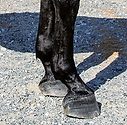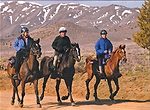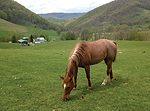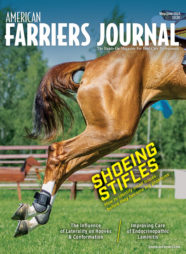Advertise Follow Us
Articles Tagged with ''fetlock''
Farriers’ early recognition can help slow the degeneration of the condition
Read More
Quick-Hit Highlights From The American Association Of Equine Practitioners Convention
Equine veterinarians share research and thoughts on various subjects on equine foot and limb health, primarily related to their use of magnetic resonance imaging
Read More
Focusing on Activities, Breeds & Disciplines
Going The Distance With Endurance Horses
Understanding the horse’s conformation and the inconsistent terrain it will be racing on will keep these equine athletes going strong
Read More
Wedges Play Role In Treating Fetlock, Joint Injuries
A routine morning check-up sent this couple on a mad dash to save a 16-year-old mare
Read More
Latest Hoof-Care Ideas From Vet Meeting
Check out these footcare ideas from December’s annual meeting of the American Association of Equine Practitioners
Read More
Back to the Basics
Equine Anatomy: The Sesamoidian and Annular Ligaments
Structures play important role in flexor tendon and muscle interaction
Read More









